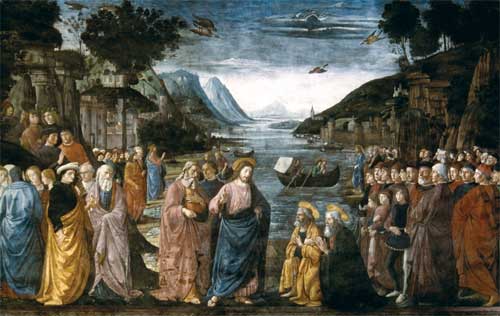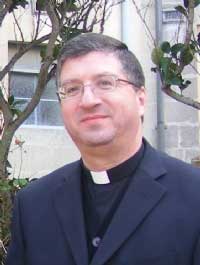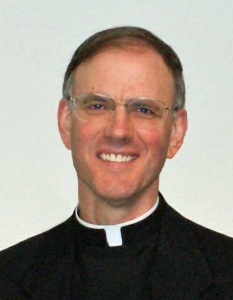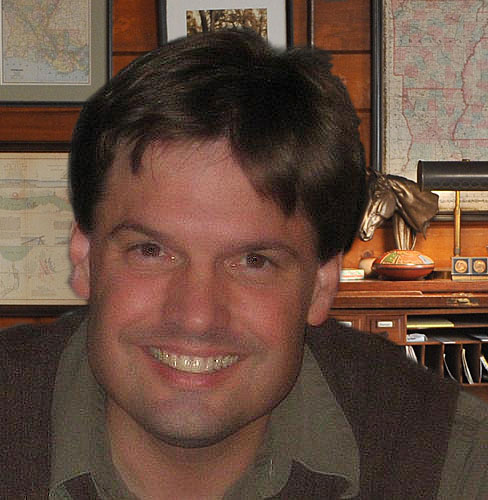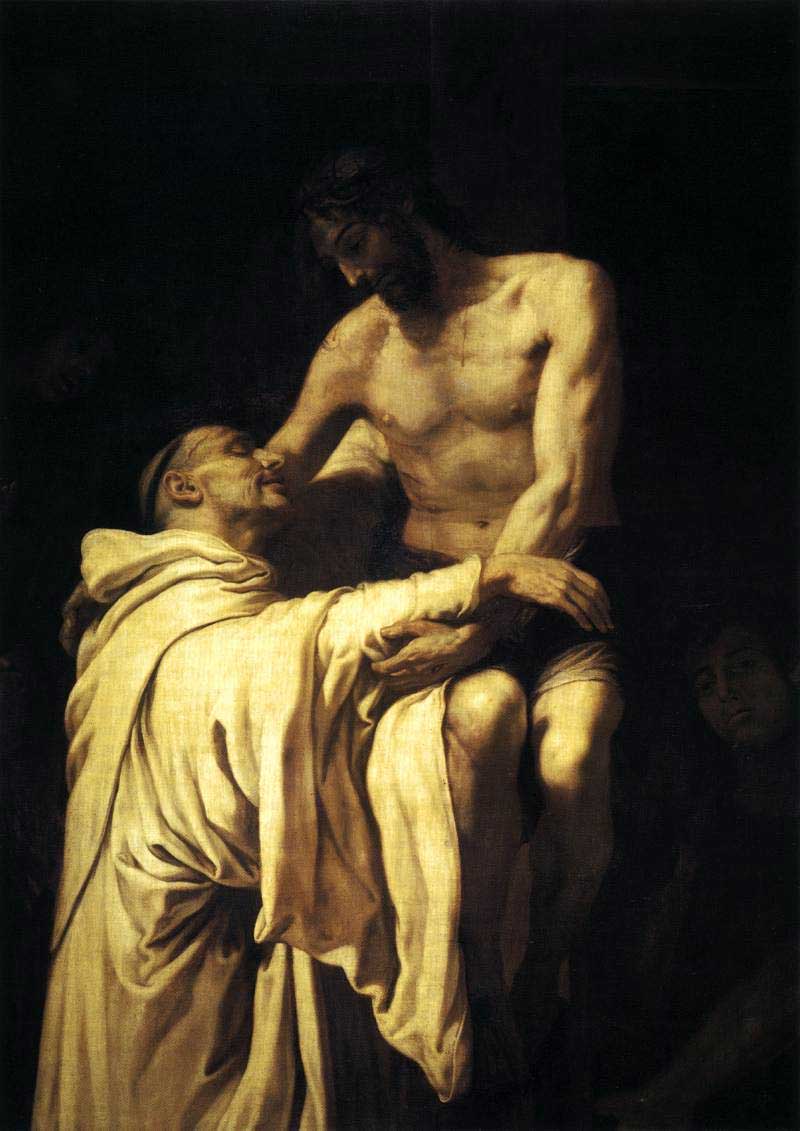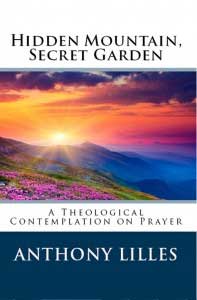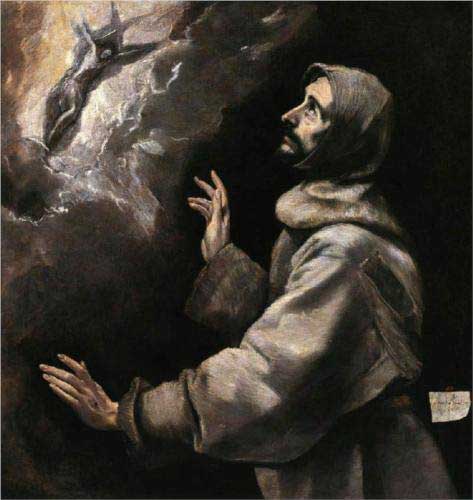Is Jesus Calling? A Spiritual Guide to Discerning Your Vocational Call with Fr. Paul Hoesing – 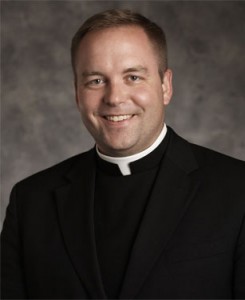 episode 1: Introduction – Whether it’s to the priesthood, religious life, married life…discerning what our vocation is can be a challenge, but it doesn’t have to be. Fr. Hoesing discusses what discernment is, what the process is like, and what can help guide us along the way.
episode 1: Introduction – Whether it’s to the priesthood, religious life, married life…discerning what our vocation is can be a challenge, but it doesn’t have to be. Fr. Hoesing discusses what discernment is, what the process is like, and what can help guide us along the way.
[powerpress]
Based on “Is Jesus C alling You To Be A Catholic Priest: A helpful guide”, published by National Conference of Diocesan Vocation Director.
Fr. Paul Hoesing serves as the Vocation Director for the Archdiocese of Omaha, NE.
Check out “For Your Vocation.org”
Tags: archdiocese of omaha, discernment, married life, NE, Paul Hoesing, priesthood, religious life, single life
This entry was posted on Friday, November 29th, 2013 at 8:39 am
You can follow any responses to this entry through the RSS 2.0 feed.
Fr. Nicholas Cachia is a truly insighful and gifted spiritual director and theologian. From the beautiful island of Malta, Fr. Cachia spends a portion of his summer as a faculty member with the Institute for Priestly Formation located at Creighton University, in Omaha, Nebraska. In this particular conversation we discuss various topics:
- God’s infinite and unique love for each of us
- The need for authentic discernment in our daily life
- One of the biggest blocks to the God’s great love for us…the fear of losing control and surrendering
- Why the prayer at the end of the day is so important.
- The risk of loving God and others
- The need for being open to the Word of God receiving the Word
- What is “Lectio Continua”
Then he leads us in a meditation on
The Good Shepherd - The great image of Compassion.
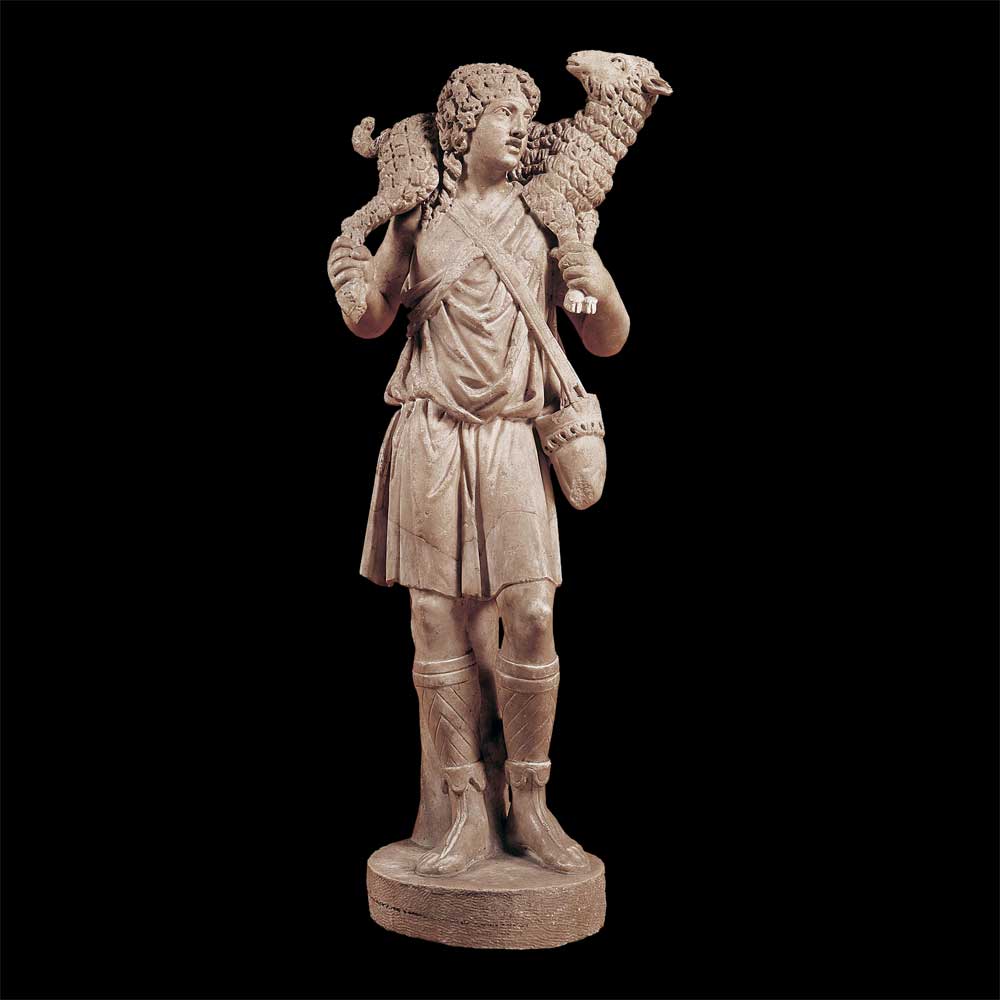
This statue of “The Good Shepherd” was chosen by Pope Benedict XVI in October 2012 to represent the image for the New Evangelization
Rev. Dr Nicholas Cachia is Lecturer in Spiritual Theology at the Faculty of Theology since 1996. His areas of interest include the spirituality of the various stages of life as well as the spirituality of the different states in life, particularly that of the diocesan priesthood. After receiving his undergraduate degree (S.Th.B.) and a Licentiate in Pastoral Theology from the Faculty of Theology at Tal-Virtù (1980-1988), he continued his tertiary studies at the Pontifical Gregorian University in Rome. There he read a Licentiate in Biblical Theology and a Doctorate in Spiritual Theology (1988-1995). His doctoral thesis was published in 1997 in the series Tesi Gregoriana with the title: I am the Good Shepherd. The Good Shepherd lays down his life for the sheep (John 10, 11). The Image of the Good Shepherd as a source for the Spirituality of the Ministerial Priesthood.
He is also Spiritual Director at the Major Seminary in Malta (1994-2000; 2003-present). Since 2003, he is president of the Spiritual Formation Commission within the Secretariat for the Clergy of the Archdiocese of Malta.
Previously he presided over the Commission for the Permanent Formation of the Clergy within the same Secretariat (1994-2000). He was also Deputy Chairman (2000-2001) and then Executive Chairman (2001-2003) of the Media Centre and of RTK Radio. During this time he was also member of the Executive Board of the European Catholic Radio Conference (CERC).
Fr Cachia is a member of the Centro di Studi di Mistica Cristiana, Italy and of the Society for the Study of Christian Spirituality (USA). Since 2004 he teaches at the Summer Session of the Seminarians’ programme of the Institute for Priestly Formation, Creighton University, Omaha, Nebraska USA.
Tags: creighton university, institute for priestly formation, Nicholas Cachia
This entry was posted on Wednesday, November 27th, 2013 at 4:12 pm
You can follow any responses to this entry through the RSS 2.0 feed.
In the persons who go from mortal sin to mortal sin, the enemy is commonly used to propose to them apparent pleasures, making them imagine sensual delights and pleasures in order to hold them more and make them grow in their vices and sins. In these persons the good spirit uses the opposite method, pricking them and biting their consciences through the process of reason.
.[powerpress]
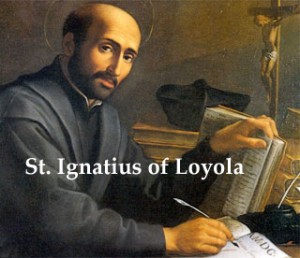 The Discernment of Spirits: Setting the Captives Free – Serves as an introduction to the Spiritual Exercises of St. Ignatius of Loyola
The Discernment of Spirits: Setting the Captives Free – Serves as an introduction to the Spiritual Exercises of St. Ignatius of Loyola
The 14 Rules for Discerning Spirits –
“The Different Movements Which Are Caused In The Soul”
as outlined by St. Ignatius of Loyola
can be found here
Father Timothy M. Gallagher, O.M.V., was ordained in 1979 as a member of the Oblates of the Virgin Mary, a religious community dedicated to retreats and spiritual formation according to the Spiritual Exercises of St. Ignatius. Â Fr. Gallagher is featured on the EWTN series “Living the Discerning Life: Â The Spiritual Teachings of St. Ignatius of Loyola”.Â
For more information on how to obtain copies of Fr. Gallaghers’s various books and audio which are available for purchase, please visit  his  website: www.frtimothygallagher.org
 For the other episodes in this series visit
Fr. Timothy Gallagher’s “Discerning Hearts†page
Tags: discernment of spirits, Father Timothy M. Gallagher, Timothy Gallagher
This entry was posted on Monday, November 25th, 2013 at 10:54 am
You can follow any responses to this entry through the RSS 2.0 feed.
Episode 2 The Discernment of  Spirits: Setting the Captives Free – The life of St. Ignatius of Loyola and the foundational elements of the Spiritual Exercises
[powerpress]
 The Discernment of Spirits: Setting the Captives Free – Serves as an introduction to the Spiritual Exercises of St. Ignatius of Loyola
The Discernment of Spirits: Setting the Captives Free – Serves as an introduction to the Spiritual Exercises of St. Ignatius of Loyola
The 14 Rules for Discerning Spirits –
“The Different Movements Which Are Caused In The Soul”
as outlined by St. Ignatius of Loyola
can be found here
Father Timothy M. Gallagher, O.M.V., was ordained in 1979 as a member of the Oblates of the Virgin Mary, a religious community dedicated to retreats and spiritual formation according to the Spiritual Exercises of St. Ignatius. Â Fr. Gallagher is featured on the EWTN series “Living the Discerning Life: Â The Spiritual Teachings of St. Ignatius of Loyola”.Â
For more information on how to obtain copies of Fr. Gallaghers’s various books and audio which are available for purchase, please visit  his  website: www.frtimothygallagher.org
 For the other episodes in this series visit
Fr. Timothy Gallagher’s “Discerning Hearts†page
Tags: discernment of spirits, st. ignatius of loyola, Timothy Gallagher
This entry was posted on Monday, November 18th, 2013 at 7:53 am
You can follow any responses to this entry through the RSS 2.0 feed.
Heart of Hope Part 1 – The role of the Cross in the Christian life, suffering, prayer and and how it conquers evil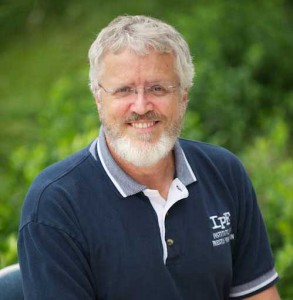
[powerpress]
Deacon James Keating, PhD, the director of Theological Formation for the Institute for Priestly Formation, located at Creighton University, in Omaha, is making available to â€Discerning Hearts†and all who listen, his series of programs entitled “The Heart of Hopeâ€.
This extraordinarily popular series explores the work of suffering in the Christian life and how God can use it to transform the heart of the individual and the world. 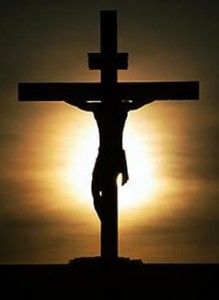
The “Heart of Hope† tackles a very tough subject…the gift of suffering in the Christian life. Deacon Keating guides us well.
.
For more information on the “Institute of Priestly Formation†and for other material available by Deacon Keating, just click here
Don’t forget to pickup a copy of “Communion with Christ†, it is one of the best audio sets on prayer…ever!
Check out Deacon Keating’s “Discerning Heart†page
Tags: creighton university, Deacon James Keating, Deacon Keating, institute for priestly formation, suffering
This entry was posted on Tuesday, November 12th, 2013 at 12:45 pm
You can follow any responses to this entry through the RSS 2.0 feed.
SP#2 The School of Prayer: Foundations for the New Evangelization
Fr. Scott Traynor talks about how we have to do more than just talk about prayer. He discusses how we must “live” our prayer in the union of love within the heart of the Holy Trinity. That is the goal of Christian prayer. He goes on to describe the very nature of the Holy Trinity….the relationship of love between the Father, the Son, and the Holy Spirit.
In Father Scott Traynor’s book, Blessed John Paul II’s memorable call to make of the parish a school of prayer takes on flesh and becomes concretely attainable. Those you read these faith-filled pages will find renewed desire to create such parishes and a clear road-map toward this goal.
–Father Timothy Gallagher, OMV
Father Scott Traynor received his STB from the Pontifical Gregorian University and his JCL from Catholic University of America. He has been an instructor and spiritual director for many of the programs at the Institute for Priestly Formation.
Father Traynor is a retreat master and spiritual director who has travelled the country as a speaker at various conferences, diocesan gatherings and national conferences.. He is especially sought after to present on the topics of prayer, discernment and priestly identity and mission.
He serves the Rector of the St. John Vianney Theological Seminary in Denver Colorado.
Tags: holy trinity, love, prayer, Scott Traynor
This entry was posted on Monday, November 11th, 2013 at 7:51 am
You can follow any responses to this entry through the RSS 2.0 feed.
As if Already in Eternity: The Wisdom of Blessed Elisabeth of the Trinity (as found on Anthony’s “Beginning to Pray” blog site)
Blessed Elisabeth of the Trinity is a witness to the primacy of contemplation in the life of the Church and the mystical wisdom contemplation releases into human history. Â This is the wisdom that understands how God is present in both the public square as well as in the intimacy of our hearts. Â Today, when the whole world needs this wisdom renewed, the Church celebrates her feast day and invites us to consider her powerful spiritual doctrine.
She wrote a famous prayer to the Holy Trinity that has helped many contemplatives recover devotion to the Divine Persons in their life of prayer.  This work is cited to support the  Catechism of the Catholic Church’s teaching on the Divine Works and the Trinitarian Missions.  The teaching itself is that God calls every individual to a great and beautiful purpose, to become a dwelling place for His presence in the world:
The ultimate end of the divine economy is the entry of God’s creatures into the perfect unity of the Blessed Trinity. Â But even now we are called to be a dwelling for the Most Holy Trinity, ‘If a man loves me,’ says the Lord, ‘he will keep my word, and my Father will love him, and we will come to him, and make our home with him’ (CCC 260).
This is a rich teaching because it says that our ultimate fulfillment is not simply something waiting for us in a remote future, in a distant afterlife. Â Instead, the Catechism proposes that heaven can begin now in faith. Â This means that our faith offers us a fullness of life. Â We do not have to be content with managing through life’s ambiguities and uncertainties with the hope that someday it might get better. Â Instead, our faith gives us a real foretaste of the fullness that awaits us — so that the excessiveness of God’s love can pour into our lives here and now, if we will believe in Him.
To encourage this decision to believe in the love that God has for us in the here and now of our lives, the Catechism cites the beginning of Blessed Elisabeth’s prayer to the Trinity, “O my God, Trinity whom I adore, help me to forget myself entirely so to establish myself in you, unmovable and peaceful as if my soul were already in eternity.”
Blessed Elisabeth’s prayer helps us consider what it means to have faith, to believe in God and what He calls us to become. Â This kind of faith is a matter of a love that takes us out of ourselves. It is, in this sense, an ecstatic movement of heart, a decision to lay aside everything so that there is space for God to dwell in us. Â Faith helps us see that our own bloated egos need to make way for God. Â To love Christ to the point of welcoming His word in our hearts means He can begin to help us forget our very self. Â He is the One who frees us so that the fullness of life that awaits us in heaven begins here on earth.
Her words suggest that the biggest obstacle to prayer is not anything outside ourselves, but proclivities within. Â The ego has its own specific gravity. Â Its force, if left unchecked, its deadly. Â Anxieties over our own plans and for security, our lust for control and to put others in their place, our need to be right and esteemed, our obsession with being liked or affirmed, our gluttony for comfort and entertainment; all of this fails to provide any firm ground for rectifying our existence. Â Unchecked, these tendencies suffocate the heart, and as long as one’s heart is pulled by these forces, it can find no peace.
Only when we can get out of ourselves are we able to breath the fresh air of friendship with God and true solidarity with one
another. Â At the same time, even after we see how imprisoned we are, left to our own resources, we cannot entirely free ourselves. Â The answer is not to be found in our own cleverness or in some Titanic effort to surmount oneself through techniques. Â Only Christ can help us leave our old way of life behind. Â This is why Blessed Elisabeth’s prayer begins with a cry for help.
Clinging to what Christ has revealed about the Father and about humanity, this is the essential movement of faith. Â This is His word to us – for He is the saving Word that reveals this inexhaustible mystery. Â Those whose hearts are vulnerable to this radiant beauty find true inner freedom.
Souls whom Christ helps to be free of themselves stand firm in love even as everything in life falls apart around them. Â This is only because through Christ they have found the ground of their very being in the excessive love flowing from the Holy Trinity into their nights, their voids, their inadequacies and even their failures. Â In short, come what come may they know they are loved and that love awaits them.
It by standing on this ground that a soul opens itself to God’s presence in ever new and surprising ways. Â On this ground, He dwells in them. Â With the inflow of His truth and love, it is easy to let go and to trust, and anyone who has discovered this freedom wants to be established there in an unmovable way.
Today is the feast of Blessed Elisabeth of the Trinity. Â She lived out this truth to her last anguished heartbeat, bedridden with an incurable disease even as the political powers of her day threatened those she loved the most and the Church was rocked by all kinds of scandal. Â This Carmelite Mystic, the Mystic of Dijon, believed her mission was to help souls enter to a transforming encounter with Christ, one that requires a journey out of ourselves where we are vulnerable enough to be touched by Him. Her words encourage us to call out to the Word, and to let His great Canticle of love resound in our hearts with all its fulness — for to know this saving truth is to live as if already in eternity.
Tags: Anthony Lilles, Blessed Elisabeth, faith, love
This entry was posted on Monday, November 11th, 2013 at 12:13 am
You can follow any responses to this entry through the RSS 2.0 feed.
Liturgy of the Hours
[powerpress]
 For centuries Catholic priests, monks and nuns sanctified their days by praying the Psalms. This practice was inherited from the Jews, who prayed at set times in the temple. The Western Church was largely influenced by the Benedictine monks, who immersed themselves in the Psalms seven times each day, in addition to Mass and private prayer.
For centuries Catholic priests, monks and nuns sanctified their days by praying the Psalms. This practice was inherited from the Jews, who prayed at set times in the temple. The Western Church was largely influenced by the Benedictine monks, who immersed themselves in the Psalms seven times each day, in addition to Mass and private prayer.
The Church today encourages the laity to pray a shorter form of this called the “Liturgy of the Hours.â€Â The two major parts of this are called morning prayer and evening prayer, and there are also readings for each day corresponding to the seasons of the Church’s liturgical calendar.
Praying the Liturgy of the Hours can be a powerful tool. It helps us acquire the discipline of regular prayer and fills our hearts and minds with Scripture as we go about our days. I once heard a priest say every single one of the priests he knew who had left the priesthood had stopped praying their daily office of prayer.
For more info talk to your priest or Catholic bookstore, and cover your household in spiritual protection each day with Mass, rosary, and the Liturgy of the Hours
Tags: divine office, Faith Check, hearts, liturgy of hours, prayer, priests
This entry was posted on Monday, November 11th, 2013 at 12:11 am
You can follow any responses to this entry through the RSS 2.0 feed.
[powerpress]
SP#1 The School of Prayer: Foundations for the New Evangelization
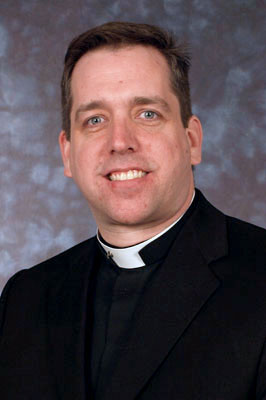 Fr. Scott Traynor begins this series on prayer by describing how Jesus Christ desires a deep personal relationship of the heart with each of us and how this is the true foundation for the New Evangelization. He discusses the adventure of the life of faith and the gifts the Father wishes to shower upon us in union with Jesus Christ and the Holy Spirit. He breaks open the reality of the indwelling Holy Spirit, who is the great teacher of prayer. Fr. Traynor encourages us to grow in union with Trinity through opening our hearts in prayer.
Fr. Scott Traynor begins this series on prayer by describing how Jesus Christ desires a deep personal relationship of the heart with each of us and how this is the true foundation for the New Evangelization. He discusses the adventure of the life of faith and the gifts the Father wishes to shower upon us in union with Jesus Christ and the Holy Spirit. He breaks open the reality of the indwelling Holy Spirit, who is the great teacher of prayer. Fr. Traynor encourages us to grow in union with Trinity through opening our hearts in prayer.
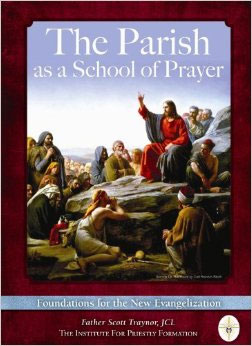
In Father Scott Traynor’s book, Blessed John Paul II’s memorable call to make of the parish a school of prayer takes on flesh and becomes concretely attainable. Those you read these faith-filled pages will find renewed desire to create such parishes and a clear road-map toward this goal.
–Father Timothy Gallagher, OMV
Father Scott Traynor received his STB from the Pontifical Gregorian University and his JCL from Catholic University of America. He has been an instructor and spiritual director for many of the programs at the Institute for Priestly Formation.
Father Traynor is a retreat master and spiritual director who has travelled the country as a speaker at various conferences, diocesan gatherings and national conferences.. He is especially sought after to present on the topics of prayer, discernment and priestly identity and mission.
He serves the Rector of the St. John Vianney Theological Seminary in Denver Colorado.
Tags: jesus christ, new evangelization, prayer, Scott Traynor
This entry was posted on Wednesday, October 30th, 2013 at 4:06 pm
You can follow any responses to this entry through the RSS 2.0 feed.
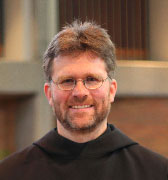 Episode 9- Â The Holy Rule of St. Benedict: A Spiritual Path for Today’s World with Fr. Mauritius Wilde O.S.B., PhD.
Episode 9- Â The Holy Rule of St. Benedict: A Spiritual Path for Today’s World with Fr. Mauritius Wilde O.S.B., PhD.
In place of idleness, work
[powerpress]
From the Holy Rule of St. Benedict:
CHAPTER XLVIII
Of the Daily Work
Idleness is the enemy of the soul; and therefore the brethren ought to be employed in manual labor at certain times, at others, in devout reading. Hence, we believe that the time for each will be properly ordered by the following arrangement; namely, that from Easter till the calends of October, they go out in the morning from the first till about the fourth hour, to do the necessary work, but that from the fourth till about the sixth hour they devote to reading. After the sixth hour, however, when they have risen from table, let them rest in their beds in complete silence; or if, perhaps, anyone desireth to read for himself, let him so read that he doth not disturb others. Let None be said somewhat earlier, about the middle of the eighth hour; and then let them work again at what is necessary until Vespers.
If, however, the needs of the place, or poverty should require that they do the work of gathering the harvest themselves, let them not be downcast, for then are they monks in truth, if they live by the work of their hands, as did also our forefathers and the Apostles. However, on account of the faint-hearted let all things be done with moderation.
From the calends of October till the beginning of Lent, let them apply themselves to reading until the second hour complete. At the second hour let Tierce be said, and then let all be employed in the work which hath been assigned to them till the ninth hour. When, however, the first signal for the hour of None hath been given, let each one leave off from work and be ready when the second signal shall strike. But after their repast let them devote themselves to reading or the psalms.
During the Lenten season let them be employed in reading from morning until the third hour, and till the tenth hour let them do the work which is imposed on them. During these days of Lent let all received books from the library, and let them read them through in order. These books are to be given out at the beginning of the Lenten season.
Above all, let one or two of the seniors be appointed to go about the monastery during the time that the brethren devote to reading and take notice, lest perhaps a slothful brother be found who giveth himself up to idleness or vain talk, and doth not attend to his reading, and is unprofitable, not only to himself, but disturbeth also others. If such a one be found (which God forbid), let him be punished once and again. If he doth not amend, let him come under the correction of the Rule in such a way that others may fear. And let not brother join brother at undue times.
On Sunday also let all devote themselves to reading, except those who are appointed to the various functions. But if anyone should be so careless and slothful that he will not or cannot meditate or read, let some work be given him to do, that he may not be idle.
Let such work or charge be given to the weak and the sickly brethren, that they are neither idle, nor so wearied with the strain of work that they are driven away. Their weakness must be taken into account by the Abbot.
Father Mauritius Wilde, OSB, Ph.D., did his philosophical, theological and doctoral studies in Europe. He is the author of several books and directs retreats regularly. He serves as Prior of our monastery in Schuyler.
 For more information about the ministry of the the Missionary Benedictines of Christ the King Priory in Schuyler, Nebraska visit here:
For more information about the ministry of the the Missionary Benedictines of Christ the King Priory in Schuyler, Nebraska visit here:
Tags: Daily Work, silence, truth, work
This entry was posted on Tuesday, October 29th, 2013 at 10:51 am
You can follow any responses to this entry through the RSS 2.0 feed.
 Episode 8 – Â The Holy Rule of St. Benedict: A Spiritual Path for Today’s World with Fr. Mauritius Wilde O.S.B., PhD.
Episode 8 – Â The Holy Rule of St. Benedict: A Spiritual Path for Today’s World with Fr. Mauritius Wilde O.S.B., PhD.
Living in Community – the benefits for all of society part 2
[powerpress]
From the Holy Rule of St. Benedict:
CHAPTER I
Of the Kinds or the Life of Monks
It is well known that there are four kinds of monks. The first kind is that of Cenobites, that is, the monastic, who live under a rule and an Abbot.
The second kind is that of Anchorites, or Hermits, that is, of those who, no longer in the first fervor of their conversion, but taught by long monastic practice and the help of many brethren, have already learned to fight against the devil; and going forth from the rank of their brethren well trained for single combat in the desert, they are able, with the help of God, to cope single-handed without the help of others, against the vices of the flesh and evil thoughts.
But a third and most vile class of monks is that of Sarabaites, who have been tried by no rule under the hand of a master, as gold is tried in the fire (cf Prov 27:21); but, soft as lead, and still keeping faith with the world by their works, they are known to belie God by their tonsure. Living in two’s and three’s, or even singly, without a shepherd, enclosed, not in the Lord’s sheepfold, but in their own, the gratification of their desires is law unto them; because what they choose to do they call holy, but what they dislike they hold to be unlawful.
But the fourth class of monks is that called Landlopers, who keep going their whole life long from one province to another, staying three or four days at a time in different cells as guests. Always roving and never settled, they indulge their passions and the cravings of their appetite, and are in every way worse than the Sarabaites. It is better to pass all these over in silence than to speak of their most wretched life.
Therefore, passing these over, let us go on with the help of God to lay down a rule for that most valiant kind of monks, the Cenobites.
Father Mauritius Wilde, OSB, Ph.D., did his philosophical, theological and doctoral studies in Europe. He is the author of several books and directs retreats regularly. He serves as Prior of our monastery in Schuyler.
 For more information about the ministry of the the Missionary Benedictines of Christ the King Priory in Schuyler, Nebraska visit here:
For more information about the ministry of the the Missionary Benedictines of Christ the King Priory in Schuyler, Nebraska visit here:
Tags: Holy Rule of St. Benedict, Mauritius
This entry was posted on Tuesday, October 29th, 2013 at 10:28 am
You can follow any responses to this entry through the RSS 2.0 feed.
BTP#33 St. Bernard and “On Loving God” Â – The Mystery of Faith in the Wisdom of the Saints. Â In this episode Dr. Lilles continues the discussion on St. Bernard of Clairvaux and his teachings found in “On Loving God”.
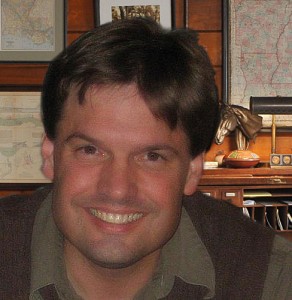
[powerpress]
Dr. Lilles offers 4 key points we should keep in mind as we move forward in this series
1. Â Â The Search for God
2. Â Â Listening to God -Â Lectio Divnia
3. Â Â Conversion to God – Conversatio Morum
4. Â Â Living with oneself and letting God fashion one into His image
Dr. Lilles’ continues his discussion on St. Bernard of Clairvaux, “On Loving God”:
[gview file="http://www.old.discerninghearts.com/blog/wp-content/uploads/2011/04/onlovinggod.pdf"]
Dr.Anthony Lilles is a Catholic husband and father of three teaching Spiritual Theology at St. John Vianney Theological Seminary. He  teaches spiritual theology and spiritual direction to transitional deacons, and the spiritual classics to the men who enter the Spirituality Year, a year of prayer in preparation for seminary formation.  He is the author of the “Beginning to Pray”  Catholic blog spot.
For other episodes in the series visit the Discerning Hearts page for Dr. Anthony Lilles
Here is the bibliography that Dr. Lilles spoke of in this episode:
The Mystery of Faith in the Wisdom of the Saints
Saints, other figures, dates and bibliographic information
St. Benedict of Nursia – b. 480 - d. 547.
St. Benedict.  The Rule. Edited by Timothy Fry, O.S.B. New York: Vintage Books, Random House, 1981, 1998. (more…)
Tags: Anthony Lilles, Blessed Sacrament, Child Jesus, Spirituality Year
This entry was posted on Monday, October 21st, 2013 at 1:17 am
You can follow any responses to this entry through the RSS 2.0 feed.
THE WAY OF PERFECTION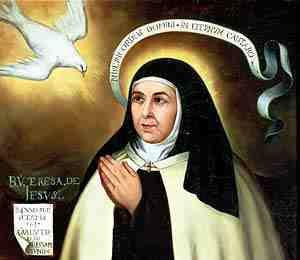
By
St. Teresa of Avila
PROTESTATIONS -Â PROLOGUE – Chapter 1 – Chapter 2
[powerpress]
For the pdf containing the complete text and footnotes click here
Chapter 1 – Of the reason which moved me to found this convent in such strict observance.
Chapter 2 -Â Treats of how the necessities of the body should be disregarded
and of the good that comes from poverty.
THE WAY OF PERFECTION
by
ST. TERESA OF AVILA
Translated & Edited by
E. ALLISON PEERS
from the Critical Editon of
P. SILVERIO DE SANTA TERESA, C.D.
Tags: Critical Editon, st, Translated Edited
This entry was posted on Sunday, October 20th, 2013 at 5:33 pm
You can follow any responses to this entry through the RSS 2.0 feed.
BTP#32 St. Bernard and the 12 Steps to Humility and Pride  – The Mystery of Faith in the Wisdom of the Saints.  In this episode Dr. Lilles continues the discussion on St. Bernard of Clairvaux and his teachings found in “The 12 Steps to Humility and Pride” and “On Loving God”.

[powerpress]
Dr. Lilles offers 4 key points we should keep in mind as we move forward in this series
1. Â Â The Search for God
2. Â Â Listening to God -Â Lectio Divnia
3. Â Â Conversion to God – Conversatio Morum
4. Â Â Living with oneself and letting God fashion one into His image
Dr. Lilles’ continues his discussion on St. Bernard of Clairvaux, “The 12 Steps of Humility and Pride” and “On Loving God”:
[gview file="http://www.old.discerninghearts.com/blog/wp-content/uploads/2011/04/onlovinggod.pdf"]
Dr.Anthony Lilles is a Catholic husband and father of three teaching Spiritual Theology at St. John Vianney Theological Seminary. He  teaches spiritual theology and spiritual direction to transitional deacons, and the spiritual classics to the men who enter the Spirituality Year, a year of prayer in preparation for seminary formation.  He is the author of the “Beginning to Pray”  Catholic blog spot.
For other episodes in the series visit the Discerning Hearts page for Dr. Anthony Lilles
Here is the bibliography that Dr. Lilles spoke of in this episode:
The Mystery of Faith in the Wisdom of the Saints
Saints, other figures, dates and bibliographic information
St. Benedict of Nursia – b. 480 - d. 547.
St. Benedict.  The Rule. Edited by Timothy Fry, O.S.B. New York: Vintage Books, Random House, 1981, 1998. (more…)
Tags: Anthony Lilles, Blessed Sacrament, Child Jesus, Discerning Hearts, Spirituality Year
This entry was posted on Friday, October 11th, 2013 at 3:01 pm
You can follow any responses to this entry through the RSS 2.0 feed.
CW3 St. Francis of Assisi – Conversion, Crisis, Relationship, and Prayer  – The 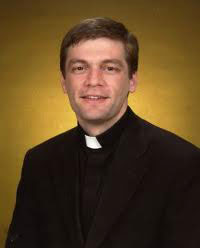 Great Cloud of Witnesses: Guides for Prayer with Fr. Mark Cyza
Great Cloud of Witnesses: Guides for Prayer with Fr. Mark Cyza
[powerpress]
Fr. Mark Cyza discusses the prayer of St. Francis of Assisi. Â He speaks of the radical intimacy of St. Francis and Jesus Christ and how it was born from the saint’s continuing conversion and how it was fueled by his relationship with Christ in prayer. Â How can his prayer be a beacon for our own: the center of our spiritual life must be focused on Christ….if it gazes on anything else we fall off track.
Resources:
Biographies of him were written soon after his death, by people who knew him and by people who interviewed those who knew him. We have many near contemporary sources, aside from Francis’ own writings, through which we can come to know Francis.
The Little Flowers of St. Francis is the only one of these source documents commonly available on the web for reading free. There are several sources, which we give here for you to read this work, or listen to it, if you download the MP3s from CCEL.
Another copy of The Little Flowers, this one from EWTN
Tags: Assisi Conversion, CCEL, jesus christ, Mark Cyza, miracles, Paschal Robinson, prayer, relationship, Resources Fr, Saint Francis, Sister Bookshelf Biographies
This entry was posted on Saturday, October 5th, 2013 at 12:02 am
You can follow any responses to this entry through the RSS 2.0 feed.

